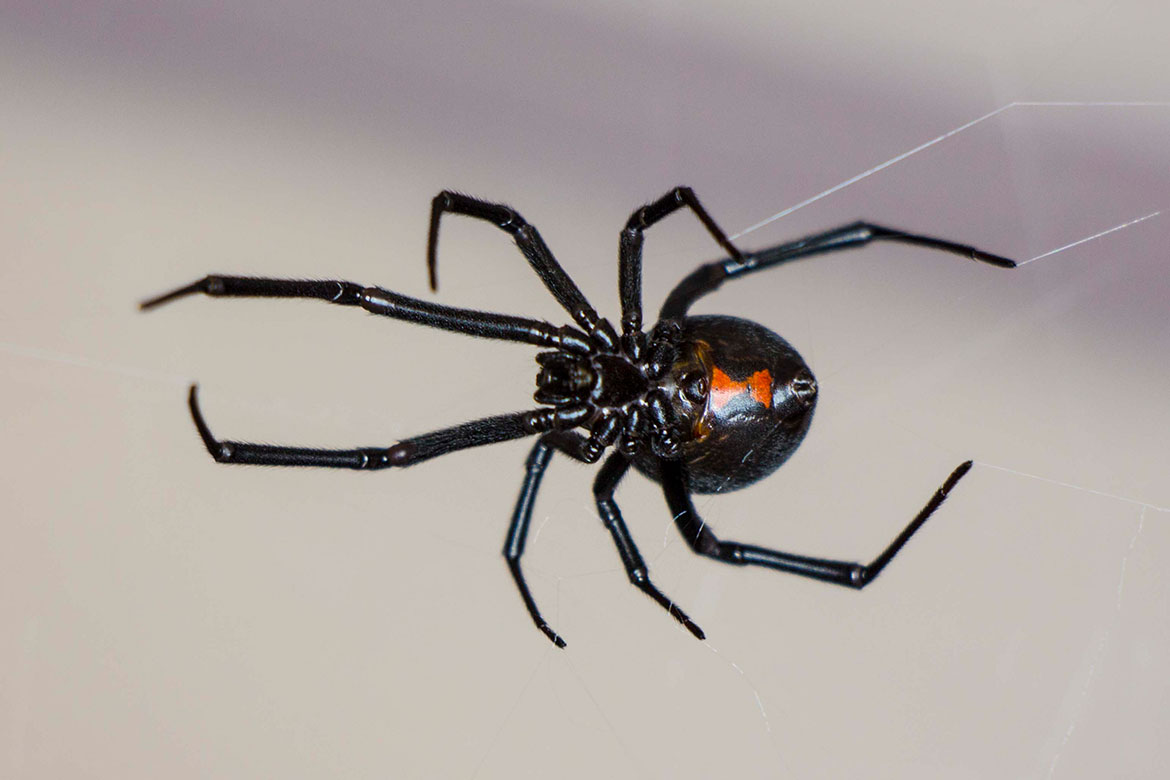Spider behaviour
How spiders make high-pressure decisions
Black widow spiders react differently to their conspecifics, depending on how well fed they are.

Whether or not she’s skipped a meal, this black widow will defend her web against any competitor. | Photo: Tom Ratz
It’s often external circumstances that determine how an animal behaves in a particular situation. What condition is it in? And is its behaviour influenced by its conspecifics? Tom Ratz is an evolutionary biologist at the University of Zurich who has been investigating how social and environmental factors like these can influence the behaviour of black widow spiders. These creatures from North America are venomous, although Ratz insists they’re not aggressive. So it’s perfectly possible to work with them.
Female black widows make complex webs. Some threads are used to catch their prey, while others secure the web against predators. Ratz let several black widows weave their webs in individual boxes but gave half of them half as much food as the others. He then compared the behaviour of hungry and well-fed spiders in terms of their propensity to attack potential prey in their web, and the number of protective threads that they wove into it. In some cases, he also placed a competitor female in the box of a test spider.
When a competitor was present, all the spiders made more protective threads, regardless of their food situation. “The web is extremely valuable to the spider”, says Ratz. “She has to defend it, even when she is physically weakened”. The ‘prey test’ had a different outcome. When a competitor was present, the well-fed specimens reacted more aggressively to a vibration stimulus that imitated a flying insect caught in the web. But the poorly nourished spiders held back. “A black widow can go for months without food”, says Ratz. “If she’s weakened and a competitor is present, her best option might be to take no risks”.
Ratz believes that these different patterns of behaviour must have proven advantageous over the course of evolution. Experiments like his, he says, could therefore shed light on what evolutionary selection factors are the more important – be they the presence of competitors or the nutritional status of the spider.




